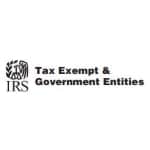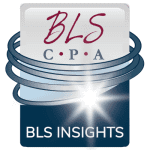 In October of 2019 the IRS Tax Exempt & Government Entities (TE/GE) division issued its Fiscal Year 2020 Program Letter.
In October of 2019 the IRS Tax Exempt & Government Entities (TE/GE) division issued its Fiscal Year 2020 Program Letter.
The Program Letter discusses the TE/GE’s priorities and key areas of focus for the upcoming year. It is also meant to aid in TE/GE’s mission of providing their customers (you!) top quality service by helping them understand and comply with the applicable tax laws and protecting the public interest by applying the tax law with integrity and fairness to all.
The Program Letter discusses the TE/GE’s compliance platform, which is divided into six portfolio programs: Compliance Strategies; Data-Driven Approaches; Referrals, Claims and Other Casework; Compliance Contacts; Determinations; and Voluntary Compliance and Other Technical Programs. The letter indicates that data is used to “identify and address existing and emerging high-risk areas of noncompliance and steer decisions on how best to apply optimal resources.” We will provide some insight on three of the TE/GE’s portfolio programs below, specifically in relation to exempt organizations.
Compliance Strategies
Compliance Strategies are issues that are submitted and approved by the TE/GE’s Compliance Governing Board. Once these issues are approved, they are considered priority work. As more issues become approved, those with higher priority may replace previously approved issues. The TE/GE strives to ensure the focus is on the highest known priority items and emerging risks.
Below are some of the key areas of focus that are currently approved under the Compliance Strategies program for exempt organizations:
- Hospital organizations with unrelated business income (UBI) reported on form 990-T where expenses materially exceed gross income
- IRC 501(c)(7) Tax Exempt Social Clubs with investment and nonmember income
- IRC 4947(a)(1) Nonexempt Charitable Trusts (NECTs) that underreport income or overreport charitable contributions
- Organizations that previously operated as for-profit entities prior to their conversion to IRC 501(c)(3) organizations
- Organizations who show indicators of private benefit or inurement to individuals or private entities by way of private foundation loans to disqualified persons
Compliance Contacts
The TE/GE utilizes correspondence contacts to address potential noncompliance, primarily through the use of “compliance checks” and “soft letters.” A compliance check is correspondence with organizations to inquire about an item on a filed return to determine if specific reporting requirements have been met or to determine whether an organization’s activities are consistent with its stated tax-exempt purpose. A soft letter is correspondence with organizations that provides notification of changes in tax-exempt law or compliance issues. The TE/GE will use these correspondence contacts to improve the accuracy of return filings and to determine if exempt organizations are adhering to recordkeeping, return filing, and information reporting requirements involving the following:
- Exempt organizations that are required to, but fail to, file Form 940, Employer’s Annual Federal Unemployment Tax Return
- Entities that have credit balances but fail to file employment tax returns
- Tax-exempt hospital organizations that did not comply with IRC Section 501(r)(4)
- IRC Section 501(c)(7) organizations that reported investment income on Form 990/990-EZ but did not file Form 990-T, Exempt Organization Business Income Tax Return
- Entities that were required to file, but failed to file, Form 1099-MISC, Miscellaneous Income
- IRC Section 501(c)(12) organizations that may have failed to meet the 85%-member income test
- Nonexempt Charitable Trusts (NECTs) that are required to file, but fail to file, Form 1041, U.S. Income Tax Return for Estates and Trusts
Determinations
With the expectation of a large volume of determination letters, TE/GE says the focus for 2020 is to improve efficiency and modernize its systems and business process. In fact, the TE/GE Commissioner recently said that the IRS Form 1023 (Application for Recognition of Exemption Under Section 501(c)(3) of the Internal Revenue Code) will be offered in electronic format in January 2020, although there is no set date for when this process will be digital only.
Management and board members of exempt organizations should familiarize themselves with the TE/GE’s Program Letter and evaluate their organization’s risk of noncompliance. Please contact your CPA or BLS professional with any questions or to request additional guidance regarding your exempt organization’s compliance.
